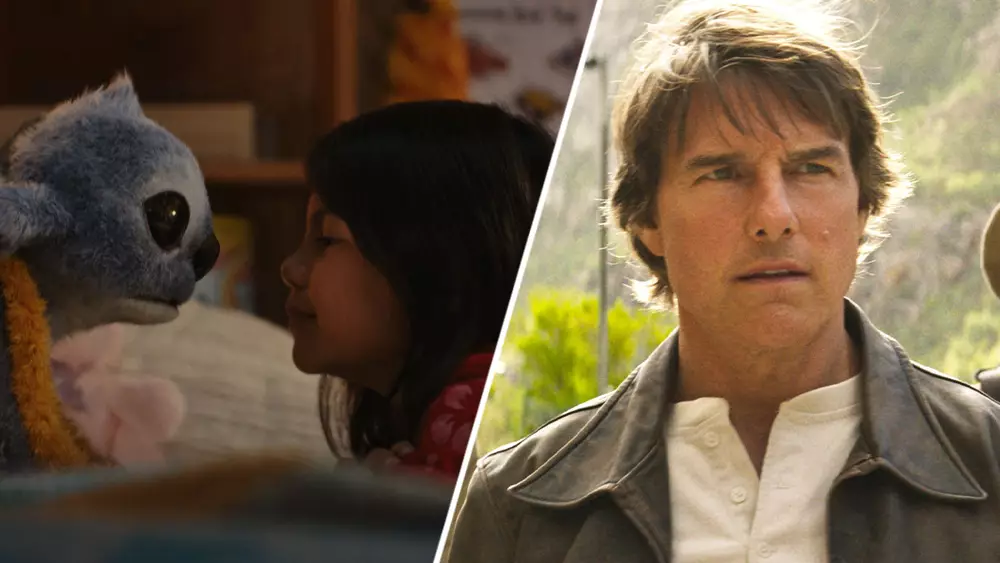As summer approaches, the keen eyes of Hollywood turn toward the box office with collective anticipation and hope. The stakes are high, particularly for Disney and Marvel Studios, whose upcoming film *Thunderbolts* faces burgeoning expectations of a hefty $70 million opening weekend. However, the initial buzz surrounding the film reveals a troubling trend: a potential lack of excitement for Marvel’s latest offering compared to the historical juggernauts in their lineup. Should *Thunderbolts* flounder at the box office, it raises the question—can the studio reclaim its former glory as the undisputed titan of blockbuster filmmaking?
Disney and Marvel’s landscape is not without its opportunities. The upcoming release of *Lilo & Stitch*, coupled with Paramount’s *Mission: Impossible – The Final Reckoning*, presents considerable competition. The projections for both films are astronomical with estimates suggesting that *Lilo & Stitch* could surpass $100 million in its debut, while *M:I 8* may smash opening records for the franchise. This is a stark contrast to last year’s muted Memorial Day weekend, where lackluster titles failed to generate excitement, culminating in a dismal $132 million.
Tracking the Trends: The Quorum Effect
Hollywood’s reliance on predictive analytics has become increasingly pronounced, with Quorum’s tracking data becoming the gospel for studios. While Quorum has enjoyed success with forecasting hits like *Deadpool* and *Captain America: Brave New World*, recent disappointments in predicting family films highlight a significant flaw in their approach. Family-oriented movies, which typically thrive on social traction, seem to evade precise forecasting, resulting in situations where studios are left grasping for a lifeline.
Despite the fluctuating predictions, the initial tracking for *Lilo & Stitch* and *M:I 8* suggests higher audience awareness than for *Thunderbolts*. With awareness scores of 62 and 59 respectively, compared to *Thunderbolts* at a dismal 37, the figures raise alarms about the public’s dwindling excitement for Marvel properties. This discrepancy is harrowing for a franchise that once dominated the pop culture landscape. The corresponding notion that both competing films will likely capitalize on their pre-release marketing pushes creates a palpable pressure on *Thunderbolts* to rethink its strategy and reset audience expectations.
A Shift in Audiences: The Disconnect with MCU Fans
In a cultural era rich with streaming alternatives, one must ponder whether audiences have begun to feel disillusioned with the Marvel Cinematic Universe. Those numbers don’t lie—only 42% of potential viewers express interest in seeing *Thunderbolts* in theaters, whereas audiences for *Lilo & Stitch* and *M:I 8* are itching for that cinematic experience at a score of 50. It begs the question: can Marvel still resonate with audiences who hunger for originality and innovation? The response may lie in a simple yet profound truth: Marvel’s formula is growing stale.
The landscape of movie marketing has shifted alongside its distribution methods, and the successful films of tomorrow will likely be those that embrace engagement driven by social media. The buzz surrounding films like *Minecraft* and the successful campaigns that turned films into cultural events reflect how critical a fluid and adaptive marketing approach is, something that Marvel seems to lag behind on. They need to cultivate a sense of urgency and excitement long before a premier date, not just to rely on nostalgia and established fandom.
Future Prospects: The Road Ahead
In an era where box office metrics are vital indicators of a studio’s health, Marvel and Disney must prioritize revitalization efforts. They need to harness their narrative strengths, churn out stories that are not only entertaining but also resonant with contemporary societal issues. Reinvigorating their storytelling will attract varied demographics, making their narratives more inclusive and reflective of the world around us.
The landscape is ripe for innovative partnerships and gritty storytelling, which could very well reignite public interest. Moreover, with strategic releases that capitalize on the dynamics of audience engagement, the chances of overcoming the current malaise could well be within reach. The call for a renewed passion in storytelling is loud and clear, and whether Marvel heeds that call could shape the future of not just *Thunderbolts*, but the entire Marvel Cinematic Universe going forward.

